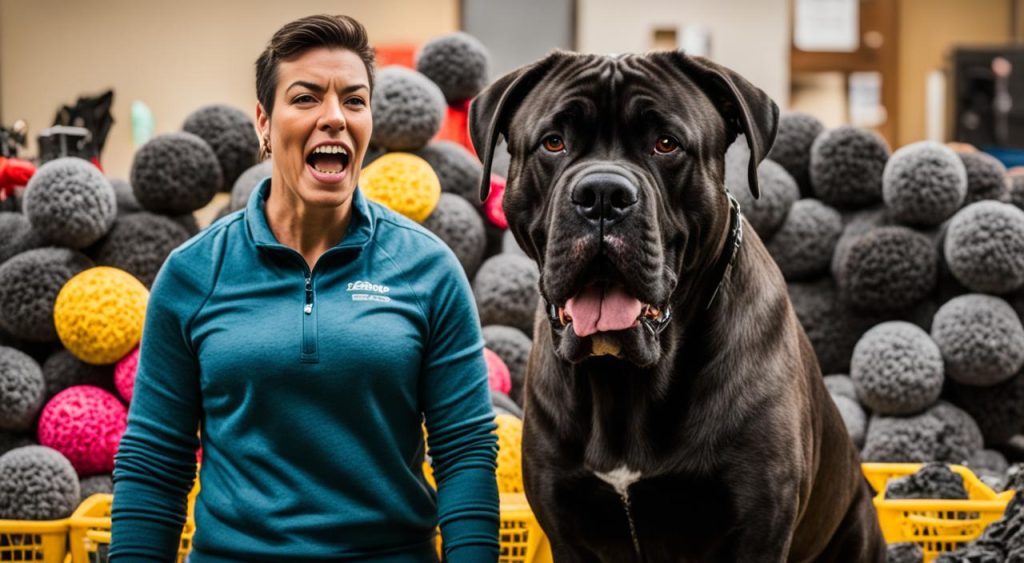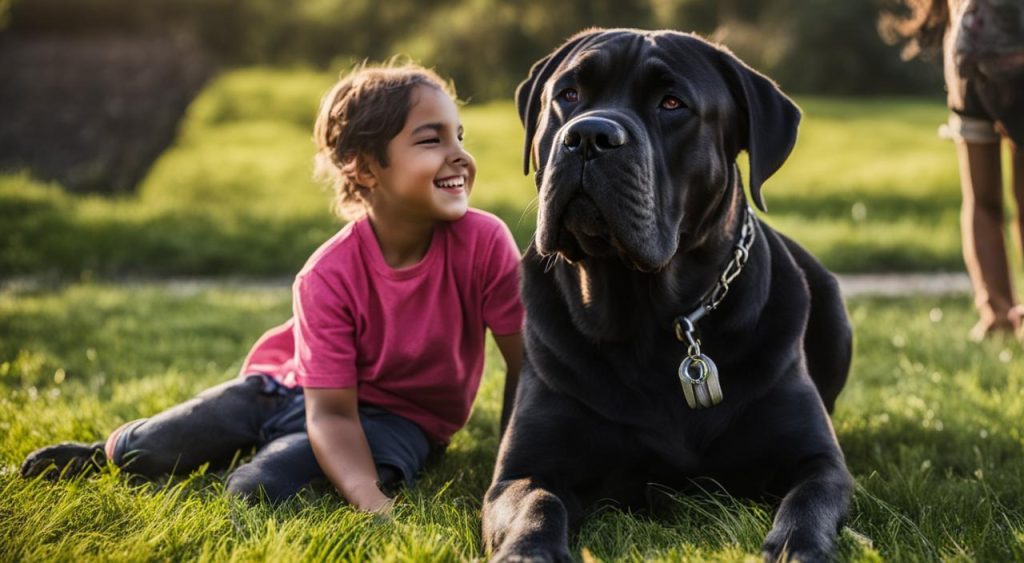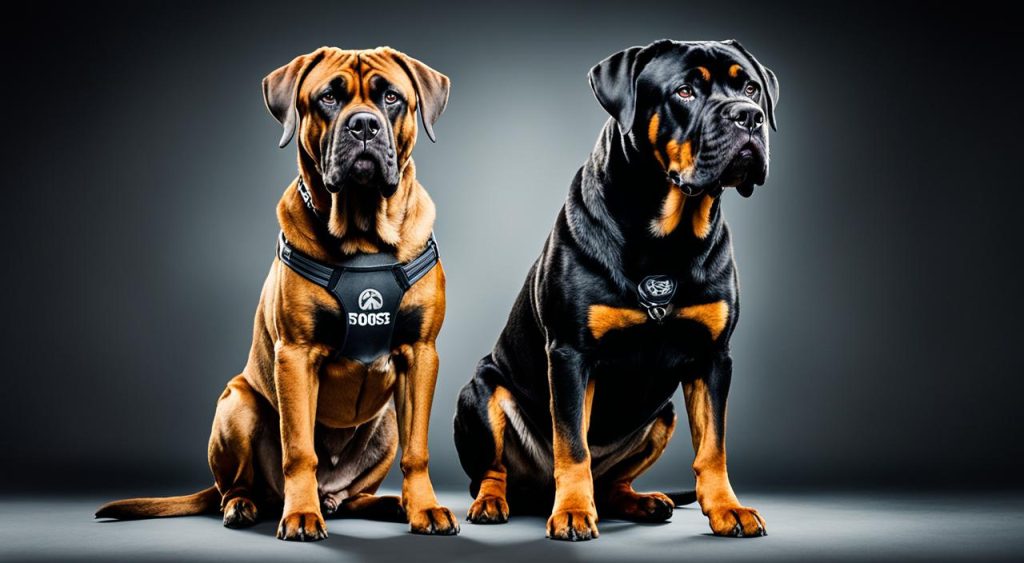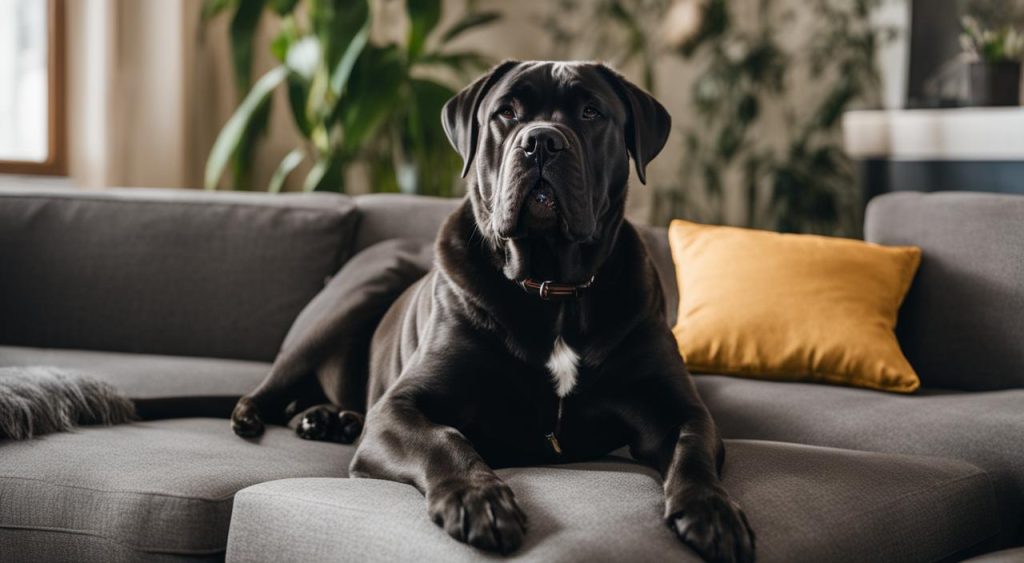When it comes to Cane Corsos, there is a common misconception that they are aggressive and dangerous dogs. However, this assumption is far from the truth. While individual dogs may exhibit aggressive behavior, it is important to understand that aggression is not inherent in the breed and is typically a result of external factors.
Cane Corsos, also known as Italian Mastiffs, are known for their loyalty, intelligence, and protective nature. They are versatile and adaptive dogs that can excel in various roles, including as family pets, working dogs, or therapy dogs. Their temperament should not be generalized based on stereotypes.
Aggressive behavior in Cane Corsos can often be attributed to a lack of training and socialization. These dogs require early and consistent training to shape their behavior positively. Proper socialization with people and other animals is crucial to prevent fear or anxiety-driven aggression.
It is also essential to address any underlying health issues that can contribute to aggressive behavior. Conditions like hip dysplasia or chronic pain can cause discomfort and result in reactive responses. Regular veterinary check-ups and appropriate medical care are important in maintaining their overall well-being.
To ensure a well-behaved Cane Corso, it is crucial to provide them with the proper training, socialization, and care. By understanding their behavior and meeting their physical and mental needs, you can prevent aggressive tendencies and foster a loving and loyal companion.
Key Takeaways:
- Cane Corsos are not inherently aggressive but may exhibit aggressive behavior due to external factors.
- Training and socialization are essential in shaping a Cane Corso’s behavior positively.
- Underlying health issues can contribute to aggression and should be addressed through regular veterinary care.
- Understanding their breed characteristics and providing a positive environment can help prevent aggressive behavior.
- Cane Corsos are loyal, intelligent, and versatile dogs that can thrive with proper training and care.
Factors Influencing Cane Corso Aggression
Understanding the factors that contribute to aggression in Cane Corsos is essential in dealing with and managing their behavior. By addressing these factors and implementing proper training and techniques, you can prevent aggression in these magnificent dogs.
Lack of proper socialization and training can be a significant factor in Cane Corso aggression. Without exposure to various people, animals, and environments, they may develop fear or anxiety, leading to aggressive behavior. It is crucial to socialize your Cane Corso from a young age, exposing them to different situations in a controlled and positive manner.
Separation anxiety can also trigger aggressive behavior in Cane Corsos. Leaving them alone for extended periods without proper preparation can result in stress and frustration, leading to aggression. Gradual desensitization techniques and providing mental stimulation can help alleviate separation anxiety and reduce aggressive tendencies.
Health issues, such as hip dysplasia or chronic pain, can also contribute to Cane Corso aggression. Discomfort or physical limitations can provoke defensive reactions, especially when the dog feels threatened or in pain. Regular veterinary check-ups and addressing any health issues promptly can minimize the risk of aggression in Cane Corsos.
Addressing the underlying factors
To prevent aggression in Cane Corsos, it is crucial to address the underlying factors that contribute to their aggressive behavior. This involves providing proper socialization, training, and addressing any potential health issues. By understanding their needs and giving them the necessary tools to thrive, you can create a safe and harmonious environment for both the dog and your family.
Continue reading: Training and Care for Cane Corsos
Training and Care for Cane Corsos
Proper training and care are essential in managing and preventing aggression in Cane Corsos. Early training and socialization play a crucial role in shaping their behavior positively. By exposing your Cane Corso to various environments, people, and other animals from a young age, you can help them develop good social skills and reduce the likelihood of aggressive behavior.
Consistency in training methods is key to effectively managing aggression in Cane Corsos. Establishing clear boundaries and expectations will help your dog understand what is acceptable behavior. Positive reinforcement, such as treats and praise, can be used to reward desirable actions, encouraging your Cane Corso to repeat them.
Regular exercise is vital for Cane Corsos to release their energy and stimulate their minds. Engaging in physical activities like long walks, jogging, or playing fetch can help channel their energy in a positive way. Mental stimulation is equally important and can be achieved through puzzle toys, obedience training, or interactive play sessions. A well-exercised and mentally stimulated Cane Corso is less likely to display aggressive behavior.
A balanced diet is crucial for the overall well-being and behavior of Cane Corsos. Providing them with high-quality dog food that meets their nutritional needs will contribute to their physical health, mental clarity, and stable temperament.
Consistency in training and providing a positive environment are key to fostering a healthy and well-behaved Cane Corso.
In conclusion, managing and preventing aggression in Cane Corsos requires a holistic approach of proper training, socialization, exercise, and nutrition. By investing time and effort into their upbringing and care, you can raise a well-adjusted and well-behaved Cane Corso that will make a loyal and loving companion.
Conclusion
The Cane Corso is often misunderstood as an aggressive breed, but their aggression is not inherent and can be managed through proper training, socialization, and care. It is important to understand the factors that contribute to aggression in Cane Corsos, such as lack of socialization, training, or underlying health issues. By addressing these factors and providing a positive environment, consistent training, and meeting their physical and mental needs, Cane Corsos can become loyal, intelligent, and well-behaved family pets.
Approaching the Cane Corso breed without preconceived stereotypes is crucial. Each individual dog should be given the opportunity to showcase their true nature, free from generalized assumptions. By providing the necessary training, socialization, and care, Cane Corsos can develop into well-rounded companions with a balanced temperament.
In summary, the Cane Corso’s aggression is often a result of external factors rather than inherent characteristics. With the right approach, these dogs can thrive in a loving and nurturing environment. By understanding the breed and meeting their specific needs, Cane Corsos can become wonderful family pets, capable of exhibiting loyalty, intelligence, and good behavior.





